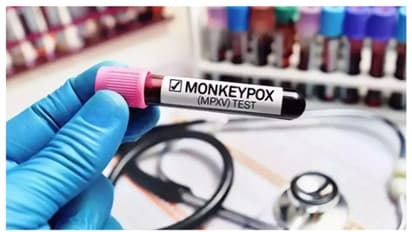India's first Mpox clade 1 case confirmed: Kerala man diagnosed with strain linked to WHO health emergency

Synopsis
India on Monday confirmed its first Mpox clade 1 case, linked to the World Health Organization (WHO) public health emergency, in Kerala's Malappuram.
India on Monday confirmed its first Mpox clade 1 case, linked to the World Health Organization (WHO) public health emergency, in Kerala's Malappuram. Last week, the patient, a 38-year-old man who travelled from UAE recently, was confirmed with monkeypox infection after showing symptoms of the disease. His samples were sent for testing and the results confirmed that the man is infected with Mpox clade 1 strain.
According to news agencies, the patient is stable, with sources adding that "this was the first case of the current strain that led to the World Health Organization declaring Mpox a public health emergency last month for a second time."
Last week, Kerala Health Minister, Veena George, disclosed that the man began to exhibit symptoms shortly after his arrival in Kerala. Following his initial consultation at a private hospital, he was transferred to Manjeri Medical College for further evaluation. Upon suspecting monkeypox, healthcare professionals submitted samples for testing at Kozhikode Medical College. George commended the patient's proactive approach to his health by isolating himself upon noticing symptoms, thereby mitigating potential risks to his family and community.
This incident marks a critical moment as the WHO recently declared monkeypox a Public Health Emergency of International Concern (PHEIC) due to its increasing prevalence in various regions, particularly across Africa. The virus has been a source of concern since its spread became more noticeable in global health reports.
Notably, the current case is distinct from a recent infection in Delhi involving a 26-year-old resident from Hisar, Haryana, who tested positive for the West African clade-2 of the Mpox virus. The Union Health Ministry classified that case as isolated and not related to the public health emergency declared by WHO regarding clade 1.
Mpox infections typically present as self-limiting conditions, with symptoms generally lasting between two and four weeks. Patients often recover with appropriate medical care and supportive management. As public health officials monitor the situation, they emphasize the importance of early detection and isolation in controlling the spread of infectious diseases.
Stay updated with the Breaking News Today and Latest News from across India and around the world. Get real-time updates, in-depth analysis, and comprehensive coverage of India News, World News, Indian Defence News, Kerala News, and Karnataka News. From politics to current affairs, follow every major story as it unfolds. Get real-time updates from IMD on major cities weather forecasts, including Rain alerts, Cyclone warnings, and temperature trends. Download the Asianet News Official App from the Android Play Store and iPhone App Store for accurate and timely news updates anytime, anywhere.